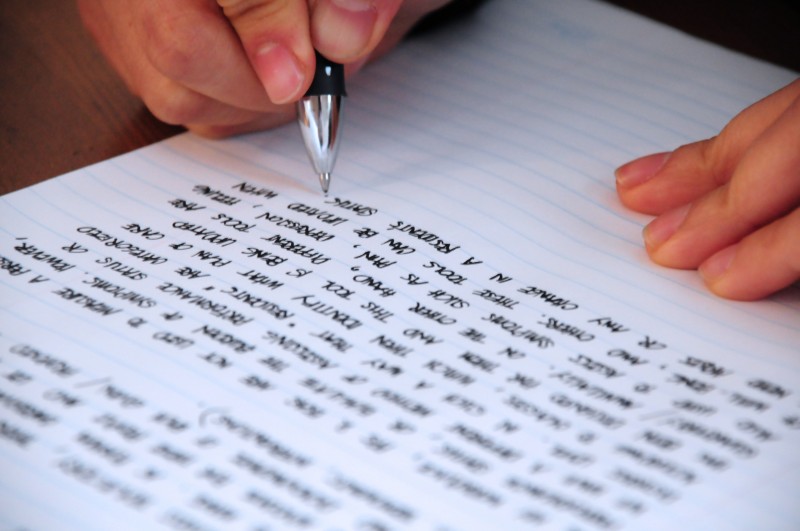 I rarely share client stories, but a recent experience is birthing a whole new way of working for me. I just finished a 30-day writing experiment with a physician client who is just starting out on a brand new path. Having already found the courage to leave his medical practice and head into the open space of the unknown, we worked on rekindling a secret dream he's held for a long time, maybe his whole life: writing.
I rarely share client stories, but a recent experience is birthing a whole new way of working for me. I just finished a 30-day writing experiment with a physician client who is just starting out on a brand new path. Having already found the courage to leave his medical practice and head into the open space of the unknown, we worked on rekindling a secret dream he's held for a long time, maybe his whole life: writing.
He always wanted to try writing, but never did because he had a belief it was too impractical and was no way to make a living. Yet he knew he had stories to share, and ones that would help others if he did.
I wanted to hear these stories myself. I was curious what touched him so deeply about his experiences in medicine. I knew that in hearing these stories, we could both experience a healing journey.
So I came up with this idea, which I had never done with a client before: a writing experiment. The assignment was to write daily for ten minutes a day, thirty days in a row. Then send that writing to me, which I read every day. Mostly we let the process run itself, but we had two phone conversations during the month, once to check in and then again to review the entire process.
I knew that a small, daily commitment done over a sustained period of time would lead to something. A new habit at the very least. An awakened sense of hope and creativity I envisioned as possible.
What I didn't expect was the vast territory we would cover in those ten minutes of daily writing each day. Not only did I learn from my client's deep minings that occurred from this type of reflection, but I heard accounts of key moments, important feelings, and long-held beliefs that it might have taken months to get to with traditional weekly phone coaching calls. In timed writing, you get to the heart of the matter quickly. You can try to dance around, squirm a bit, but the hand keeps moving and the clock keeps ticking, and something gets said that has juice to it, even if at the very end.
And when you have a curious, compassionate witness, who wants to hear more, and will ask you questions and deliver you the next prompt to inspire more writing, it unfolds with surprising beauty.
It was so beautiful that we are continuing the process for another thirty days, this time including a few additional daily and weekly practices like meditation and art-making (yes! eek! art!). And now, I want to offer this powerful experience to you.
First, here is the practice, which you can do entirely for free on your own. Form a group of friends and do this together. It could, in my client's words, be a "life-altering experience".
The practice:
- Choose a start date. Why not tomorrow?
- Choose a time and place you will do your writing every day for the next thirty days. Yes, you need to think about this in advance, or it will not happen.
- Choose a pen and notebook that you LOVE, and that you will use only for this writing practice. You can use the computer too if you must, but I highly encourage the use of pen and paper for this. There are enough reasons we are called to the computer, and not enough good reasons to go manual these days. Here's one.
- Get a timer. Most phones have a timer app. Or use a good old-fashioned egg timer or stopwatch or alarm.
- Set the timer for 10 minutes. When you sit down to write, you start the timer. When the timer starts, your hand starts moving across the page. You don't stop. You don't pick the pen up off the paper. You are not thinking. You are letting your hand move, letting it lead the process. You don't edit grammatical or spelling errors. Don't cross anything out. Just keep writing. Lose control. See what happens. Don't have a plan.
- When the timer goes off, you stop. That's it. Pick your hand up off the paper. Close your notebook. Go do something else. This is important, too. Give yourself an endpoint that is defined.
- The next day, repeat.
- And repeat again and again for thirty days.
The page serves as a mirror to our present state, in a beautifully unedited and raw form. We get to see inside ourselves in a way we probably don't look for on our own. Our minds are too busy arranging things. Or we're reacting or responding to something outside ourselves.
With this form of writing (which is influenced and inspired by several of my favorite creativity teachers), we come into contact with the reality of the present moment, and how raw and fresh and changing it is. With practice, we also begin to create a space for ourselves to witness what is. To be OK with whatever shows up on the page. To not always be meeting some idea of an expectation. To let go of an agenda and trust, even if only for ten minutes a day.
And all of this, again in my client's words, could lead to "a whole new world opening up".
You can totally do this effectively on your own as a practice. There are great books that speak to the depth of what this can uncover, and provide you with pages and pages of prompts to go far and wild.
But if you want to work one-on-one with me, receive weekly written responses to your writing (I am not an editor or a coach or a critic, but a supportive, curious listener who tells you when I want to hear more), and have two phone conversations during your thirty-day process (one brief check-in after week one, and another full-length conversation at the end), then I am offering the opportunity for a limited number of individual clients, starting October 15th.
I've learned this about myself during the past few years: I don't do online forums, and I don't do auto-responder emails. I thrive in one-on-one interactions. According to the online marketing experts, this breaks all the rules of becoming a rock-star millionaire business owner. But that doesn't faze me. I'm following the bliss of what I know to be an extremely potent process, which is in alignment with everything I know from experience to be valuable to the recovery of the soul.
Here's how to join me in October.
